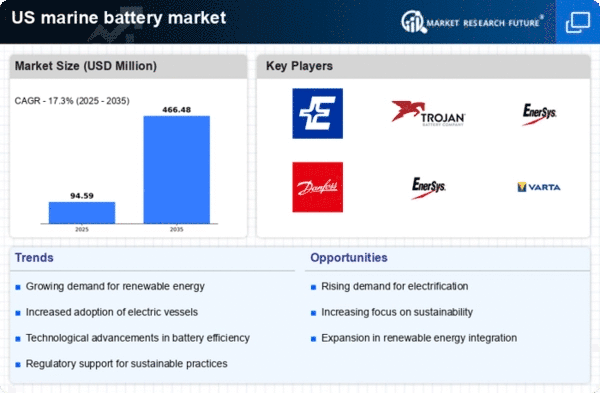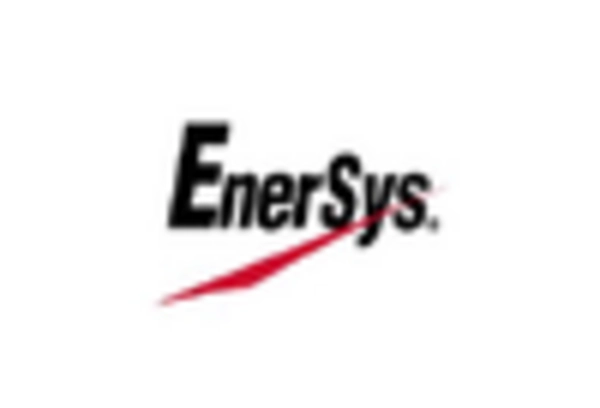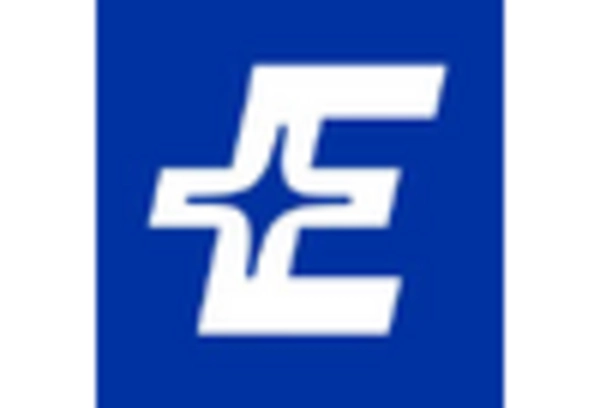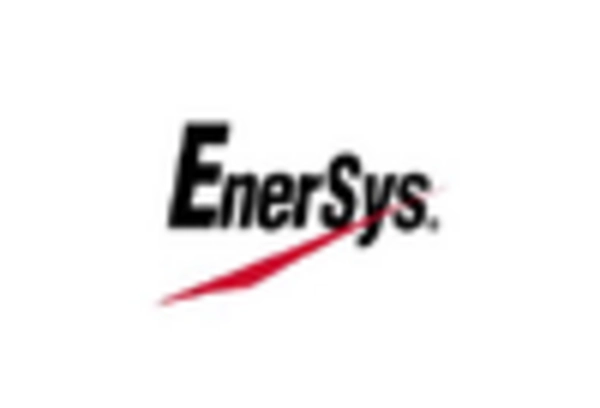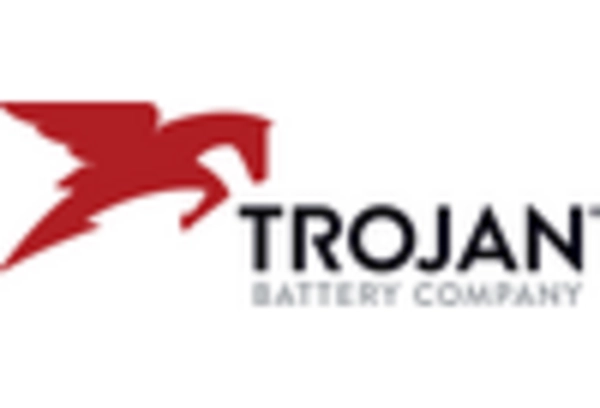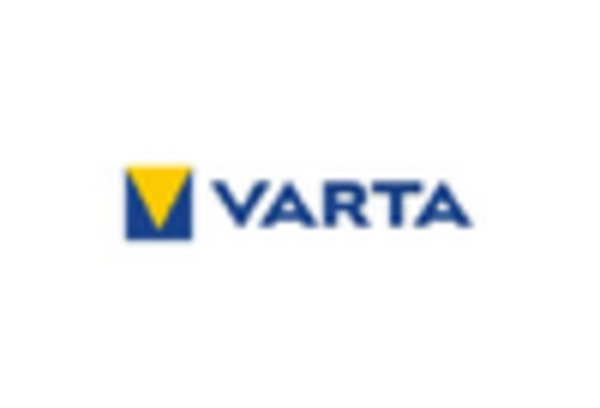Expansion of Marine Tourism
The marine battery market is positively impacted by the expansion of marine tourism in the US. As tourism activities related to boating, fishing, and water sports continue to grow, the demand for reliable marine battery systems is expected to rise. In 2025, the marine tourism sector is projected to increase by around 6%, creating a favorable environment for marine battery manufacturers. This growth is prompting companies to enhance their product offerings, focusing on batteries that provide longer life and better performance under various conditions. As a result, the marine battery market is likely to benefit from the increasing number of tourists engaging in marine activities, driving sales and innovation in battery technology.
Advancements in Battery Technology
Technological innovations play a crucial role in shaping the marine battery market. The introduction of advanced battery technologies, such as lithium-ion and solid-state batteries, is transforming the landscape. These innovations offer higher energy density, faster charging times, and longer lifespans compared to traditional lead-acid batteries. In 2025, the market for lithium-ion batteries in marine applications is expected to account for over 40% of total sales, reflecting a significant shift towards more efficient energy solutions. As manufacturers continue to invest in research and development, The marine battery market is likely to witness further enhancements in performance and safety. This will cater to the evolving demands of boat manufacturers and consumers alike..
Growing Demand for Recreational Boating
The marine battery market experiences a notable surge in demand driven by the increasing popularity of recreational boating activities in the US. As more individuals engage in boating for leisure, the need for reliable and efficient battery systems becomes paramount. In 2025, the recreational boating sector is projected to grow by approximately 5.5%, indicating a robust market for marine batteries. This growth is further fueled by the rising disposable income of consumers, allowing for greater investment in boating equipment. Consequently, manufacturers are focusing on developing advanced battery technologies that cater to the specific needs of recreational boaters, thereby enhancing the overall performance and longevity of marine battery systems.
Increase in Electric and Hybrid Vessels
The rise of electric and hybrid vessels is a significant driver for the marine battery market. As the maritime industry seeks to reduce its carbon footprint, the demand for electric propulsion systems is on the rise. In 2025, it is estimated that the market for electric and hybrid vessels will grow by approximately 7%, leading to an increased need for high-performance marine batteries. This trend is encouraging manufacturers to innovate and produce batteries that can support the unique power requirements of these vessels. Consequently, The marine battery market is likely to expand as more boat builders and owners transition to electric and hybrid solutions. This transition necessitates advanced battery technologies..
Environmental Regulations and Sustainability Initiatives
The marine battery market is increasingly influenced by stringent environmental regulations aimed at reducing emissions and promoting sustainability. In the US, regulatory bodies are implementing policies that encourage the adoption of cleaner energy solutions in marine applications. This shift is prompting manufacturers to develop eco-friendly battery options that comply with these regulations. By 2025, it is anticipated that over 30% of new marine batteries will be designed with sustainability in mind, utilizing recyclable materials and reducing harmful emissions. This trend not only aligns with regulatory requirements but also resonates with environmentally conscious consumers, thereby driving growth in the marine battery market.


